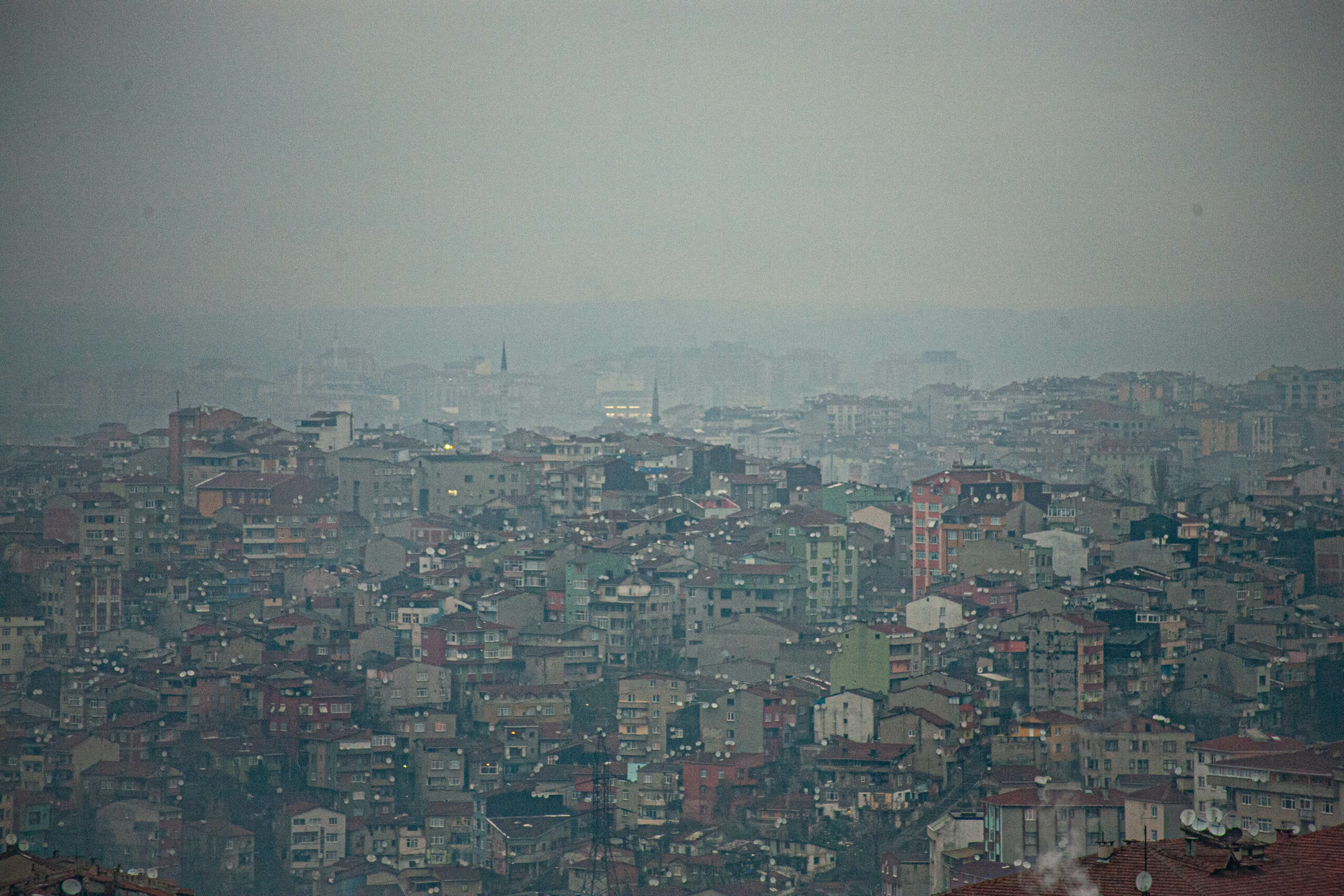*Heads-Up: Fish in Water provides advice, not guarantees. We strive for accuracy, but things change and we are imperfect humans. We do regular updates, but are not liable for any mishaps. Questions? Ask here
- Visa and Residence Permit:
Most foreigners can stay in Turkey for up to 90 days visa-free, but since you’re planning on overstaying that limit, you’ll need a residence permit. After you enter the country on a tourist visa, it’s recommended to start the residence permit process as soon as possible, but after you have an official home address*.
Remember to check your passport’s expiry date. It must be valid for at least 60 days beyond the duration of your visa or residence permit, and renewing is definitely doable but might be more of a hassle in Turkey than your home country.
Turkey now has a digital nomad visa (only certain countries allowed) in hope for more foreigners to spend their earned income in Turkey, but there’s a minimum income level required. This is not legal advice, but if you are coming to Turkey on a family member’s work permit or a family member’s citizenship and work remotely, you likely do not need to apply for this particular visa.
See our visa guide for more visa info.
*”official home address” is relative; like many things in Turkish bureaucracy, loopholes exist.
2. Healthcare:
Turkey has both private and public healthcare systems. Public hospitals won’t refuse you and they are low or no cost – although be ready for crowds, long waiting times, and fewer English speaking staff.
Then you have private hospitals. These are fancier, many have English-speaking doctors, shorter waiting times, and some feel more like hotels than hospitals. But, no surprise, they cost more.
If you’ve been a resident for over a year you may apply for SGK, or if you’re married to a Turkish citizen or a foreigner who already has SGK, you may be added to their insurance. SGK is a low cost public health insurance option that covers a portion of or most expenses.
For private insurance, there are plenty of companies eager to “offer” coverage. There’s Allianz, AXA, and Anadolu among others. Why “offer”? A lot of foreign residents end up paying out of pocket for health care because with the cheapest coverage, these private insurance companies cover practically nothing. If you’re coming from the United States, you probably won’t mind the amount you have to pay out of pocket for health care.
And then there are international health insurance companies like Cigna and Bupa – this costs a lot more but you’re likely to get some decent coverage.
How do you get insured? The process is pretty straightforward, it just depends on what you want. Our upcoming guide on health care includes a comparison of prices, coverage, and customer reviews.
3. Living Arrangements:
Renting month-to-month? Want to sign a lease? Want housemates? Where do you want to live? Renting is tricky. Many landlords nowadays want a year’s rent up front due to the volatile lira. Your best bet is asking local friends for help or hiring someone. Think you’ve got the charm and are determined to do it on your own? Hurriet Emlak and Sahibbinden are the online resources to check out. Want to hire someone? Settle Turkey will help you out.
Here’s a super quick rundown of some of the more popular neighborhoods for foreigners moving to Istanbul:
Beyoglu: Central to Istanbul’s cultural pulse, Beyoglu offers a lively urban experience. You’ve got Istiklal Caddesi, a popular avenue for tourists, bustling with shops, cafes, and cultural venues. It’s well-connected by public transport and probably the most popular spot for tourists and locals to spend their late evenings.
Cihangir: A subset of Beyoglu, Cihangir is the bohemian enclave favored by artists and intellectuals. There’s an artsy vibe going on here, not just from its steep streets lined with historic buildings, trendy cafes, and art galleries, but from the locals as well. It is likely one of the more expensive neighborhoods to live in, and the most heavily saturated with western foreign residents.
Balat: Has changed a lot in the last 15 years or so. It used to be that tourists would visit for a few hours, and now foreigners are moving here like it’s the new Cihangir. It’s a very conservative neighborhood compared to Cihangir, and for now at least, has a stronger sense of community. Balat has always been known for its colorful historic houses and rich history, and has a quieter, more chill vibe compared to Cihangir, with a handful of shops and cafes tailored to artists and foreigners.
Kadikoy: A huge district like Beyoglu, but this time in Asia instead of Europe. Its center is filled with lively bars, bookshops, and cafes, often bustling with students and young professionals. Excellent transportation links to other parts of the city.
Moda: A more upscale part of Kadikoy, Moda combines the vibrancy of a young neighborhood with quieter, more expensive residential areas. It’s favored for its seaside parks, cafes, and bars. Moda used to offer a relaxed atmosphere but now has become popular and quite lively, especially in the summertime. Some sections of Moda, however, still have managed to keep that quiet, calm vibe so it’s a pretty ideal spot if you want to be close to the city center but want to live on a quiet street close to the water.
Bebek: Nestled along the European shores of the Bosphorus, Bebek is an affluent neighborhood known for its luxurious residences, chic boutiques, and trendy cafes. The area provides stunning sea views and a quieter, upscale environment. It’s particularly popular among wealthy expatriates and locals alike. Younger folks usually don’t choose to live in Bebek, but still will visit.
Besiktas: Known for its university vibe, Besiktas is dynamic and youthful. It’s home to Istanbul University and buzzes with the energy of its student population. The neighborhood feels like a little university neighborhood nestled in a city. A fun statistic would be to find out how many bars, cafes, and restaurants there are in the district’s center – must be more than any other district. Since it’s more of a younger crowd, the prices are a bit more affordable.
Fatih: The historic heart of old Istanbul, Fatih is known for iconic landmarks like the Hagia Sophia and the Grand Bazaar. The area holds a more conservative character and is popular with tourists. If you’re looking for a liberal atmosphere or living close to nightlife, this will probably not be your jam. But if you’re a history nut and want to live right in the thick of it, this is your spot. Fatih’s prices, depending on where in Fatih, are also relatively cheap compared to neighborhoods like Bebek or Cihangir.
4. Language:
The more you know at the beginning the better off you’ll be. Is that too obvious? Our Local Lingo and Phrasebook Plus are great places to start. You’re going to need a lot of help from a lot of locals regarding your transition and a great way to show respect is to learn some of these phrases. Use these tools simultaneously with an app, and get started with a course. Check out KediCat if you’re planning on living in Istanbul, or if you’re fine with online classes.
Why use Fish in Water’s language tools?
- They’re crafted by those who know best- both tools are developed exclusively by locals—native speakers and seasoned expats alike—ensuring you get a nuanced perspective that typical phrasebooks miss. This insider’s view caters not just to tourists but also to expats, bridging the gap between simple visiting needs and deeper expatriate experiences.
- Local Lingo delves into the everyday vernacular that’s vital to the Turkish way of life, yet often overlooked by foreigners. These are the phrases that make locals nod in approval, the kind of linguistic insider trading that can turn a standard interaction into an authentic connection.
- Phrasebook Plus is survival Turkish at its finest: If you’ve ever been led astray by translation tech gone awry (imagine translating “light meal” and rather than the server recommending their salads, they take you to a more well-lit table), you’ll appreciate the accuracy and depth of Phrasebook Plus.
Both tools are designed not just to help you understand but also to express yourself in ways that resonate with the local culture. Whether you’re planning a short visit or a long-term stay, these phrasebooks are the sharpest in the shed. Dare we say, they might just be the best Turkish learning tools ever crafted.
5. Tax number
You’ll need this for your bank account, get a driver’s license, and many other things. Here’s a brief intro on what to do, but our Relocation Turkey guides will have all the tricks so you won’t be surprised or left empty handed.
6. Finances:
You’ll need a local bank account if you want to make things easy on you. Get one after your residence permit is set and you’ve gotten your tax number as well. Most foreign residents prefer Garanti Bank – their app is for the most part simple enough and account opening tends to be easier than the rest.
7. Education:
For those relocating with children, Turkey offers a variety of educational options. International schools are prevalent, especially in major cities like Istanbul, Ankara, and Izmir. These schools typically follow British, American, or German curricula, providing a smooth transition for expatriate children. Here is a list where you can search and compare international schools by city. We’ll have a more thorough comparison of the top international schools across Turkey in our Relocation Turkey: Concierge Kit.
8. Seeking employment:
Securing a job in Turkey can be challenging. Major sectors that often seek international expertise include technology, tourism, education, and healthcare. Networking is key, and professional platforms like LinkedIn and Kariyer local job boards can be valuable resources. If you have no job but are planning to move to Turkey, it’s much easier to search when you are in Turkey. The hiring process is a breeze compared to countries like the United States.
For business professionals, there are a few things to note:
-Attire is important. You may learn later that it’s not as important as you thought but it’s always recommended to look your best for interviews. If you’re comparing Turkey with the United States, there are a lot of places that are much more formal, and a lot that are much more informal. It depends. Just air on the side of formal.
-Haggling for a salary is accepted, but in Turkey it’s not a place to be pushy. Pushy will turn employers off. Asking once is okay, but after that you either accept the job assuming it’s what you deserve, or politely decline.
-Communication can be full on. Boundaries are not as visible as they are in the United States and Europe. If you’re wanting a job, quick communication is a plus. Nearly everyone uses WhatsApp, and don’t be surprised if employers will use WhatsApp for texting or calling rather than email.
-A picture on your CV is recommended. Yeah, we don’t like this one so much. But needs to be said.
-Some personal information may be asked at your interview. Technically, this is illegal, but there are no regulations in Turkey. A common one for women is if they are married (if married then a higher chance of pregnancy, therefore a higher chance of paid time off) or they’ll ask foreigners about their plans to stay in Turkey, or perhaps their residency credentials.
If you are looking for more of an under-the-table job, that definitely exists, and is the most popular in the ESL world (there are also many official ESL jobs as well). For most other under-the-table jobs, you’ll need at least elementary Turkish. FYI the minimum wage is terrifyingly low and nearly impossible to live on.
Our comprehensive employment guide, included in the Relocation Turkey bundle, will offer strategies for job hunting, further insights into the Turkish business culture, and tips on navigating work permits.
9. Culture & Etiquette:
Familiarize yourself with Turkish customs and traditions. You don’t want to be that foreigner, do you? Please see our guides on culture and etiquette before stepping foot on Turkish soil.
A few must-knows for the first time traveler:
- Personal space is relative
- Accept you might get overcharged from time to time and don’t pout about it
- Take off your shoes when you enter someone’s home
- Always offer your guests at least something to drink, and offer more than once
- A little bit of Turkish really really does go a long way
- Learn the Turkish phrases you need to ask for help / to be left alone
10. Safety and Legal Concerns:
Turkey is generally safe, but like any country, it has areas of concern. Expectations need to be realistic here. If you’ve never been to Turkey, we strongly recommend spending some good time reading our guides and blogs (many are in the works now, but they’ll be here soon!). It’s important to understand your rights under Turkish law, especially concerning residence, employment, and property ownership. And Turkish law is law, but for a lot of people, it’s a big, big mess. In the Relocation: Turkey Concierge Kit, we’ll include contact information for legal assistance and where to find help if you’re facing legal issues.
This applies to everyone, but I want to specifically reach out to women and especially queer folks. In many parts of Turkey, women are not a part of the community like they are in the west, and most queer communities are underground. Please visit our other guides about safety and life in Turkey for femmes, females, and queer folks.
Wait that’s it? Of course not. We’re not even at the beginning. Our guides available now cover a lot, but the good stuff, such as how to get a tax number step-by-step, where to research private health insurance, what neighborhoods are safe, how to furnish a home, driver’s licenses and bringing cars, setting up utilities… all of it is covered in our upcoming Relocation: Turkey Concierge Kit. And we’re here to answer questions along the way.
 Photo by Tan Kurttekin
Photo by Tan Kurttekin

